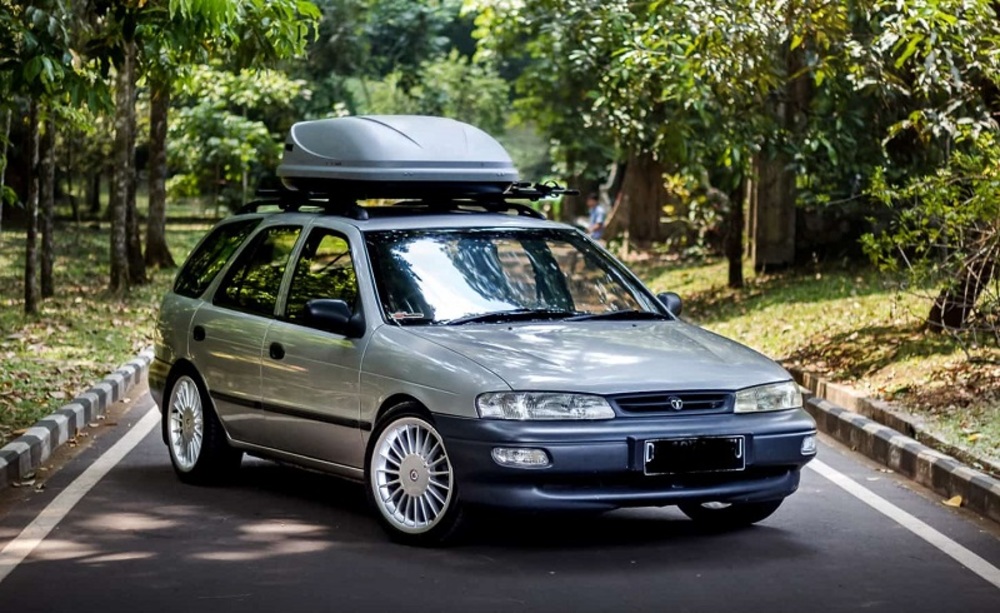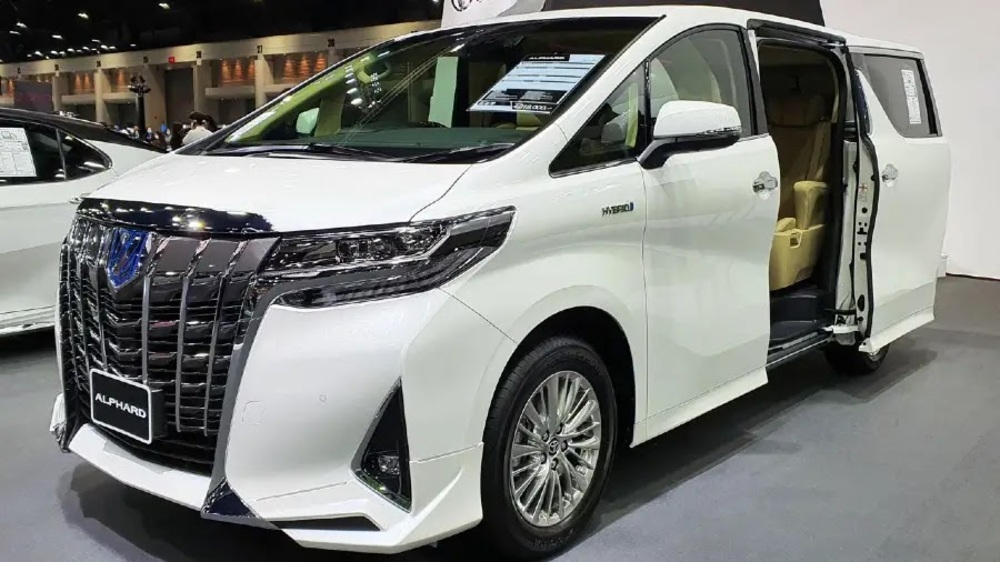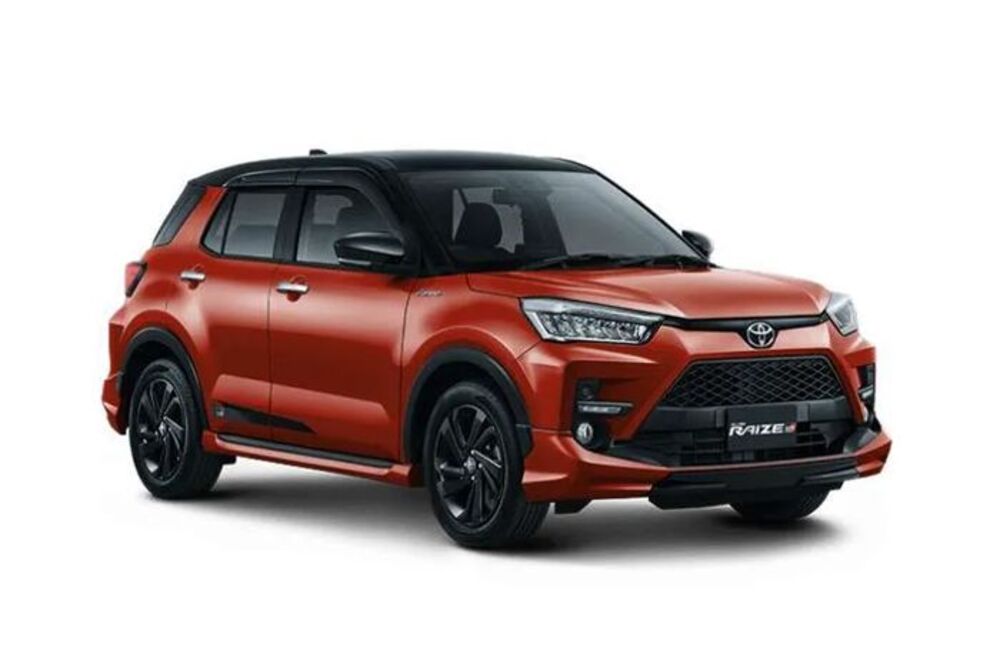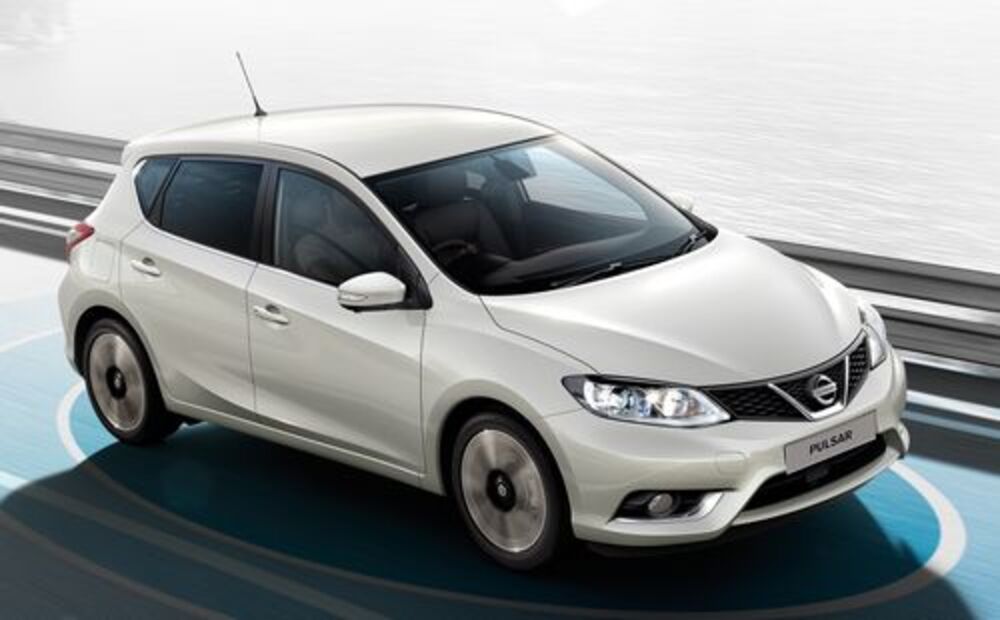Navigating the car-buying maze in Bali as a foreigner can feel like a high-stakes game.
With online expat forums buzzing with questions like, “Can I buy a car in Indonesia?” and “Can I register it in my name?” it’s no wonder the process might seem daunting.
But fear not! This guide is your ultimate roadmap, offering a clear and engaging overview to help you smoothly navigate the requirements and stay on the right side of local regulations. Buckle up and let’s get started!

First things first: Yes, foreigners can buy cars in Indonesia, but there are specific conditions to meet. The primary requirement is having either a permanent (KITAP) or temporary (KITAS) residence permit. Without one of these permits, legal car ownership isn’t possible—however, there are alternative routes you can explore.
Where to Find a Car
When hunting for a car, there are several places to consider.
For a brand new car, visit an official website, such as Honda Indonesia.
For cars with financing, check out Setir Kanan.
However, the go-to place for car hunting in Indonesia is Facebook Marketplace, where dealers and private owners alike post their ads.
In some cases, you might want to know if the ad is from a dealer or a private owner. You can generally tell the difference without having to contact them. Unlike private owners, dealers offer car financing options. Additionally, if you view the seller's profile and see that they have sold other cars in the past, you are surely dealing with a dealer. When contacting the seller, you can further inquire if the place is a dealership by simply typing in your reply to the ad: "pribadi atau jual beli?" (private or dealership?).

Buying a New Car
Purchasing a new car from an Indonesian showroom is simple and involves minimal hassle. The dealership staff handles most of the paperwork, from the transaction to the issuance of the licence plate.
Here’s what you will need to purchase a new car:
- Valid passport
- KITAP or KITAS
- A letter from your employer (if employed) guaranteeing loan payments if applicable
- Purchase order from the dealer
- Initial down payment (if financing)
Upon purchase, you will receive:
- Registration Certificate (STNK): This must be kept in the vehicle at all times.
- Licence Plate: Issued approximately one week after the transaction.
- Certificate of Ownership (BPKB): This should be stored securely and not kept in the car.
- Original Receipt of Payment and Transaction Receipt: Essential for proving ownership and handling future transactions.

Buying a Used Car
Buying a used car in Indonesia can be more complex due to the common practice of avoiding ownership transfers. Many Indonesian car owners skip updating the ownership to save on associated costs (see below). As a result, the car’s registration documents might still list the original owner instead of the current seller. This discrepancy can cause issues later, such as when renewing your STNK or transferring ownership to your name, since both require the KTP (ID card) of the person listed on the documents.

If you’re buying a used car from the original owner listed in the documents, be sure to request a copy of their KTP and promptly transfer ownership to your name. If you’re purchasing the car from someone other than the original owner (e.g., a second owner), try to trace the original owner and obtain a copy of their KTP to facilitate the transfer.If locating the original owner proves challenging, you can still proceed with the transfer without their KTP. However, be prepared for additional questions and potentially extra expenses.
When buying a used car, it is absolutely crucial that you receive at least the first two documents listed below—STNK and BPKB—as without them, proving your rightful ownership would be impossible. Having the other two documents is also recommended:
- STNK
- BPKB
- Original invoice (Faktor)
- Receipts for the transaction
These documents verify your purchase, confirm that you are the rightful owner of the vehicle, and are essential for transferring ownership to your name. Read on for the details of transferring ownership, as it is a crucial step in completing the process of legally owning a car in Indonesia.
Although this article focuses on the legal aspects of buying cars in Indonesia, it’s important to address practical considerations as well. When purchasing a used car, bring a trusted mechanic to thoroughly inspect the vehicle before finalizing the deal. Seek recommendations from car-owning friends in Bali or ask your workplace administration for a reliable mechanic. Check for any signs of odometer tampering and ensure that all paperwork is complete and accurate. Specifically, verify that STNK payments are up to date, as missing payments can result in hefty fines. Often, cars are sold cheaper due to unpaid STNK payments. In such cases, you will be liable for all the missing payments and fines if you purchase the car. The yearly payments are printed on the STNK, and any SAMSAT office (One-Stop Administration System) can advise you on the fine amount.
Insurance
Before purchasing a car, ensure you can insure it, especially for older models. Indonesia offers a range of insurance options from both local and international companies.

Car Financing for Foreigners in Indonesia
Most Indonesian banks do not offer credit to foreigners. However, some joint venture finance companies might provide leasing options through the dealership on both new and used cars. Car ads usually specify if this option is available. Simply contact the car dealer for information and negotiate the financing option. They will handle the rest. Generally, down payments (abbreviated as DP in ads) start from 5,000,000 IDR.
One frustrating aspect of ads offering financing in Indonesia is that they do not disclose the total cost once you finish paying. For example, an ad might look like this:
Harga Kredit: 174,000,000 IDR (Credit price)
DP: 15,000,000 IDR (Down payment)
5 Tahun: 4,700,000 IDR (Monthly repayments for 5 years)
If you calculate the total cost from start to finish, you will find that the car costs 297,000,000 IDR in total. This means buying the car on credit will cost you an additional 70.7% (123,000,000 IDR) of the advertised credit price. In contrast, the cash price (without financing) of the same car is 181,000,000 IDR.
If you decided to finance, you'll need:
- A valid passport
- KITAP or KITAS
- A letter of guarantee from your employer
- A purchase order from the dealer
- Down payment

Ownership Transfer (Mutasi)
When you buy a used car, you receive its documents, which contain the name of the original owner (usually the first owner, regardless of subsequent owners).You can then transfer the ownership to your name—a process known as "mutasi" in Indonesian. The same process applies if you initially bought a car using your Indonesian friend's name and now have a residence permit that allows you to legally own the car in Indonesia.
Although many people in Indonesia skip the ownership transfer due to the associated costs, bali.live recommends completing the transfer. Having your name on the car registration is an official confirmation of your legal ownership, making all processes—from paying annual tax to insuring the vehicle—straightforward.
When changing the name on a used car’s documents, several fees must be paid, which can vary by region. Generally, the costs include:
1. Road Traffic Accident Fee (SWDKLLJ)
2. Registration Fee
3. STNK, BPKB, TNKB (plate number) Fees
4. Physical Check Fee
On July 24, 2024, at the SAMSAT office in Badung, Bali, the total cost quoted for the ownership transfer of a used 2000 Honda station wagon was 3,250,000 IDR.
5. Vehicle Transfer Fee (BBN-KB) (applicable only to residents of Jakarta): This fee is 1% of the car’s purchase price or the total vehicle tax.
You can check car name transfer fees online, especially if you’re in West Java. Visit the BAPENDA website, select SAMSAT and motor vehicle tax, and follow the instructions to view detailed information.
Documents Needed for Car Ownership Transfer:
1. Photocopy of the new owner’s ID card.
2. Original and photocopy of the BPKB.
3. Original and photocopy of the STNK.
4. Proof of purchase with a stamped receipt from both parties.
5. Documents from the physical vehicle check at SAMSAT (One-Stop Administration System) corresponding to the address of the owner listed on the car's BPKB/STNK.
Car Ownership Transfer Process:
The process involves visiting two SAMSAT offices – one where the car is currently registered, as specified in its BPKB, and another your local SAMSAT (One-Stop Administration System) which is your nearest branch based on the address specified in your KTP or KITAS.
1. At the SAMSAT where the car is registered, complete a physical check, pay the registration fee, and submit the required documents.
2. At your local SAMSAT office, complete another physical check, submit documents, pay required fees, and receive your updated BPKB and STNK. You will also need to get a new number plate if applicable.
Keep in mind that fees and processes may differ based on the region, vehicle type, and other factors.

Buying a Car Without a Residence Permit: Is It Possible?
As previously mentioned, foreigners looking to buy a car in Indonesia generally need a permanent (KITAP) or temporary (KITAS) residence permit. But what if you don’t have these permits?
Many foreigners overcome this hurdle by either registering a new car in the name of an Indonesian friend or keeping a used car registered under its previous/original owner.
While bali.live generally advises buying and registering a car in your own name, if you're considering the alternative, here's how it works:
For a New Car: You can register it in the name of a trusted Indonesian friend. It’s crucial to keep all car documents with you and not hand them over to your friend to avoid complications. Maintain a good relationship with your friend, as you will need their KTP for the annual STNK renewal (see below).
For a Used Car: You can keep the car registered under the original/previous owner’s name. This approach is common in Indonesia due to the high costs associated with ownership transfer. However, you must be able to maintain contact with the original/previous owner for yearly STNK renewals (see below), as you'll need their KTP for the process.
While keeping the car registered under someone else’s name is a common practice in Indonesia—mainly due to the costs involved—bali.live does not recommend it. Having your name on the car registration documents confirms your legal ownership, simplifies managing annual tax payments, and is crucial for insuring your vehicle and handling situations such as accidents or theft.

Vehicle Taxes
Vehicle ownership in Indonesia comes with several taxes:
Registration Tax: 10-20% of the purchase price (varies by region).
Annual Vehicle Tax: Approximately 2% of the vehicle's appraised value. This means you pay more for newer and more expensive cars and less for older and cheaper cars. If you are buying a used car, the cost of this tax is specified on the STNK, and this is the amount you will pay every year when renewing your STNK.
Additional Progressive Tax (Jakarta): Up to 10% for owners of multiple vehicles.
Value-Added Tax: 10% of the appraised value upon sale.

Renewing Your STNK
STNK (Surat Tanda Nomor Kendaraan) is the Vehicle Registration Certificate. It is a vital document that must always be kept in the vehicle and readily available for inspection by the authorities upon request.
Renewing your STNK is an annual requirement and it is important to ensure timely renewal to avoid fines.
You can renew your STNK by visiting the SAMSAT office (One-Stop Administration System) yourself or use an agent for convenience.
The renewal process involves two different procedures: the annual and five-year renewals. The annual renewal focuses on updating your STNK each year by paying the necessary taxes and ensuring that the registration details are current. In contrast, the five-year renewal is more comprehensive, requiring not only the renewal of your STNK but also updating your licence plate and undergoing a vehicle inspection.
Here’s a guide to renewing your STNK, detailing the requirements for both the annual and five-year renewals.
Annual Renewal
The annual renewal focuses on maintaining up-to-date registration and tax records without requiring a physical inspection of the vehicle.
This process is relatively straightforward and involves updating the document to reflect current tax payments and any changes to the vehicle’s status. The main steps include:
1. Original Identification Card (Kartu Tanda Pengenal or KTP): Ensure it matches the name listed on the BPKB and STNK.
2. Original STNK: This serves as proof of vehicle ownership and must be presented for renewal.
3. Payment: Prepare the tax amount for the annual renewal. You can check the exact amount due by referring to the STNK or consulting local authorities.
Five-Year Renewal
The five-year STNK renewal is more comprehensive than the annual renewal and involves additional steps. It ensures that all registration details are up-to-date and that the vehicle complies with regulations. This process includes a thorough verification, such as a vehicle inspection and confirmation of vehicle details, to maintain regulatory standards.
The requirements for the five-year renewal are:
1. Original KTP: As with the annual renewal, the KTP must match the name on the BPKB and STNK.
2. Original STNK: This is required as proof of vehicle ownership.
3. Original BPKB: The vehicle registration book, which contains detailed information about the vehicle. This is required as proof of vehicle ownership.
4. Vehicle Inspection: Bring the vehicle to the registration office for inspection to ensure that it is still in good condition and that its frame and engine numbers match the registration details.
5. Check Frame and Engine Numbers: The registration office will verify that these numbers correspond with the details on your documents.
6. Payment: Prepare the tax amount for the five-year renewal.

Conclusions
Buying a car in Bali as a foreigner can be a daunting task, so being well-prepared and understanding local regulations is essential. With this guide, you can confidently navigate the car-buying process in Bali. Here’s a summary of the key points to keep in mind:
1. Seek Local Guidance: Consult local experts, your employer’s administrative staff, or long-term residents for advice. They can provide valuable insights and recommendations to help you navigate the process effectively.
2. Secure Necessary Permits: Obtain the required permits (KITAP or KITAS) before purchasing a car. Without these, legally owning a vehicle in Indonesia is not possible.
3. Work with Reputable Services: Choose reliable dealerships and finance companies to ensure a smooth buying experience. This also includes using trusted mechanics for inspections and ensuring all transactions are transparent.
4. Handle Paperwork Carefully: Ensure all documents are accurately completed to avoid any legal complications. Keep all car documents on your person, especially the BPKB, which serves as the main proof of car ownership.
5. Change the Registration to Your Name: Whenever possible, update the car’s registration to your name. This helps in avoiding potential complications with ownership and ensures compliance with local regulations.
By following these steps, you can simplify the car-buying process and enjoy your new vehicle in Bali.
Yours, Ibu Tan

Sources: expat.or.id, wuling.id
In a next article please elaborate what happens with my car ownership if I switch from a kitas to a social visa and even more important - how and where to sell my used car again! Big thank you 🙏